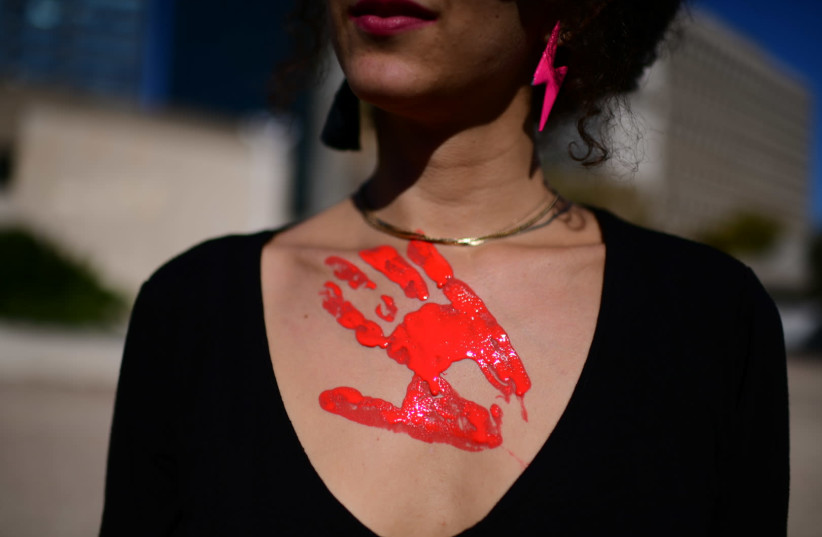The war in the Ukraine, like the COVID-19 pandemic, has had drastic effects on women. There are media reports of rape, as well as sex trafficking. Families have been broken up, perhaps never to be reunited. Daily, on the screen of the television, one can see women and children fleeing the Ukraine without their menfolk, who remain to defend their country. Those women who do stay home, may have been forced into close quarters with already violent partners.
Alternatively, previously non-violent partners or reluctant Russian or Ukrainian soldiers may have been pushed to physical and emotional breaking points, increasing the likelihood they will act violently towards their partners. Extreme violence against women often ends up as femicide – the intentional killing of a woman because she is a woman.
Femicide is a leading cause of premature death among women worldwide. Some 87,000 women were intentionally killed in cases classified as femicide in 2017, (the most recent year in which data was collected globally), according to statistics published by the United Nations Office on Drugs and Crime (UNODC). Nearly 60,000 women were killed by intimate partners, former partners or family members, 137 women across the world are killed by a member of their own family every day. Not every murder of a woman is femicide. While most intentional homicide victims are male, the majority of intimate partner or family-related homicides are female. Femicide is associated with patriarchal societies, which are characterized by male dominance and female subordination, but it can occur in any society.
It may seem like it is the time to focus on humanitarian relief for all Ukrainian refugees and discuss the diplomatic solutions to war, but for the millions of Ukrainian and Russian women whose lives have been affected by this conflict, femicide and intimate partner violence directed against them may be an inescapable part of the conflict.
Ironically, war, conflict and national emergencies often result in funds being diverted from social services and programs to combat violence against women, at exactly the time when these resources are needed most desperately. Efforts directed to seemingly more urgent needs will only serve to leave women exposed and vulnerable.

The impact of war and conflict on femicide is vital for a better understanding of this extreme form of violence against women. For obvious reasons, we do not yet have any statistics on the extent of the spike of domestic violence, rape or femicide in the Ukraine or Russia, but in time the link between war and violence against women will emerge.
Femicide in war is different from femicide in peace, and yet the dividing-line between the two is thin. In the United States, a country which is not officially at war, different sectors of society feel alienated from mainstream society. There has been huge media coverage to Black Lives Matter, but very little realization that Black Women’s Lives also matter. The nature and extent of lethal police violence against Black women in the US, their vulnerability to police violence and the responses in the media to their deaths have been silenced. Incredibly, Black women in the US have been ignored in public discourse and in femicide counts.
In order to explore the kinds of trends occurring in different societies, some officially at war and some officially enjoying peace, the Israel Observatory on Femicide (www.israelfemicide.org) will host a virtual conference on femicide in war and peace on March 30, 2022. The conference will include participants from around the world who will speak about the impacts of war and peace on femicide and violence against women in diverse countries. Some of the speakers have also contributed to a special issue of the journal Peace Review on Femicide in War and Peace, which will be launched at the conference. To the best of our knowledge, this is the first time that a discussion of femicide will take place specifically in relation to war and peace in different places in the world.
The Israel Observatory on Femicide was established in November 2020, and is funded by private donations, but directed from the Hebrew University of Jerusalem to retain neutrality. The Israel Observatory aims at monitoring femicide in Israel, providing data to NGOs and governmental sources, and analyzing the narratives of femicide quantitatively and qualitatively to prevent femicide in the future. While the Observatory focuses on trends in Israel – including the fate of Palestinian women killed dishonorably in honor killings – its reach is global. That is why it is hosting speakers from Zimbabwe, Kosovo, New Zealand, South Africa, North Caucasus and more. It is giving a voice not only to the issue of femicide in Israel, but to the plight of women in all conflict-ridden societies, including the Ukraine.
The writer is senior researcher at the Seymour Fox School of Education at the Hebrew University of Jerusalem, and founder of the Israel Observatory on Femicide.
Registration for the conference can be made at //forms.gle/pwQk2RhSxmNqEz6TA or www.israelfemicide.org.
